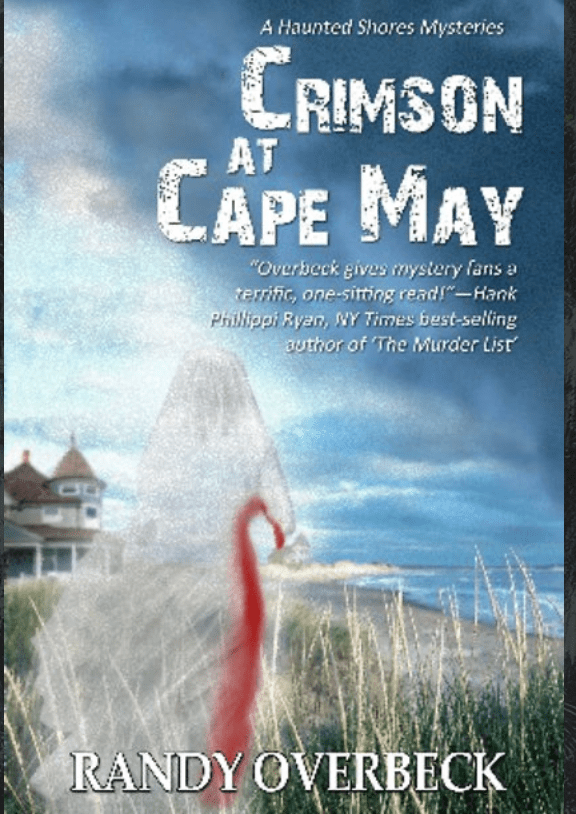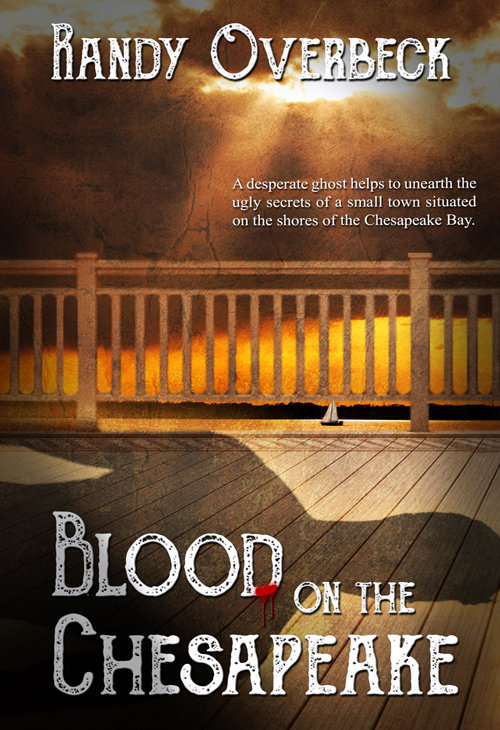Many readers enjoy the challenge of a good whodunnit or the tension of a spooky, hair-raising narrative roller coaster. The mystery genre is bursting with titles. Best-selling author Randy Overbeck is a genre veteran. His thrillers have earned him national awards and five-star reviews.
Here, Randy shares the story behind his trilogy.
Take it away, Randy:

In 2019, the Wild Rose Press launched its Haunted Shores Mysteries with my story about Darrell, a teacher and coach who sees ghosts, and the ghost of a student haunting a high school. BLOOD ON THE CHESAPEAKE was so well received by readers and reviewers that it became a #1 Amazon best seller!
Then, last year, my publisher released CRIMSON AT CAPE MAY in the middle of the pandemic. It’s a story featuring the specter of a bride murdered on her wedding night, who stalks Darrell, still bleeding in her white wedding dress. This second entry has won three national awards and, by now, the series has amassed more than a dozen 5-Star reviews from national and international reviewers. This fall CRIMSON joined BLOOD in the best seller category, hitting #2 on Amazon.

As I pondered the third installment, I realized I wanted to keep all the critical elements of the series—cold case murder, ghost, romance and resort—but I also wanted to give my readers something different. On a break from my brainstorming, I was thumbing through family pictures and came upon a photo of my grandkids playing on a playground. Staring at the images of the smiling faces, it hit me. What if the mystery was about the death of two kids? Two kids whose ghosts haunt Darrell on their quest for justice?
The rest, as they say, is history. Our last vacation—pre-pandemic—was to the Florida Gulf coast to find a suitable location for my narrative, and I found a great one. Thus, SCARLET AT CRYSTAL RIVER was born. Well, that and hundreds of hours of writing, revising, re-writing, editing, re-writing…well, you get the picture. I’m pretty happy with the end product, and I hope readers are, too.
“A ghost story with a twist, Scarlet at Crystal River is a bestseller in the making. Brilliant descriptive narration sucks the reader in and doesn’t let go until the end of the story. Paranormal and mystery readers will love Scarlet at Crystal River. If you’re looking for a spine-tingling mystery, pick up Scarlet at Crystal River. Highly recommend!” 5+ Stars—N N Light Bookheaven
SCARLET AT CRYSTAL RIVER… Darrell and Erin thought they were heading to Florida for a carefree honeymoon, but the ghosts of two immigrant children haunt them, pleading for help.
Buy Links
https://www.bookbub.com/books/scarlet-at-crystal-river-by-randy-overbeck
Connect with Randy on social media
https://twitter.com/OverbeckRandy/media
https://www.facebook.com/authorrandyoverbeck
https://www.instagram.com/authorrandyoverbeck/
https://www.youtube.com/channel/UC-KOC0LH2GQRSAjwxOFr5rg
Tik Tok @authorrandyo





